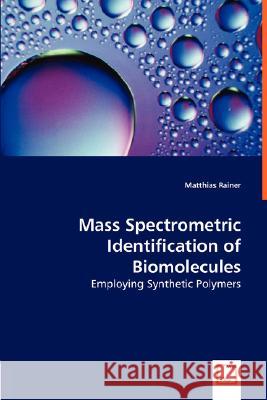Mass Spectrometric Identification of Biomolecules - Employing Synthetic Polymers » książka
Mass Spectrometric Identification of Biomolecules - Employing Synthetic Polymers
ISBN-13: 9783836469029 / Angielski / Miękka / 2008 / 140 str.
The field of proteomics provides opportunities to explain disease mechanisms and to discover diagnostic markers for early detection of diseases, but the complexity of proteomic samples makes their comprehensive analysis and characterization very difficult. Proteomic pattern analysis can be a first step for the detection of novel diagnostic markers out of body fluids when comparing mass-fingerprints from patients with those from control. Proteins are adsorbed onto carrier materials, which are selected for their ability to attract a particular type of protein, then a matrix solution is added and the proteins are profiled and identified by matrix-assisted laser desorption/ionization (MALDI) mass spectrometry (MS). Recently a new profiling method was introduced termed as material-enhanced laser desorption/ionization (MELDI) MS. This approach focuses not only on different functionalities, but also emphasizes the carriers morphology i.e. porosity or particle size of the carrier material. In this particular work, polymeric sample supports based on glycidyl methacrylate and divinyl benzene for their application in proteomics and phosphoproteomics are described.











